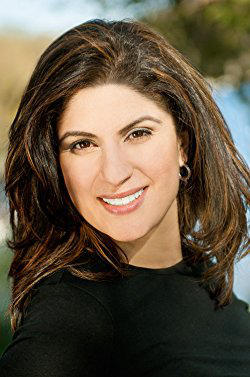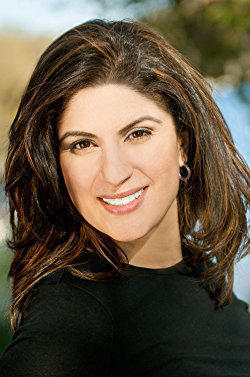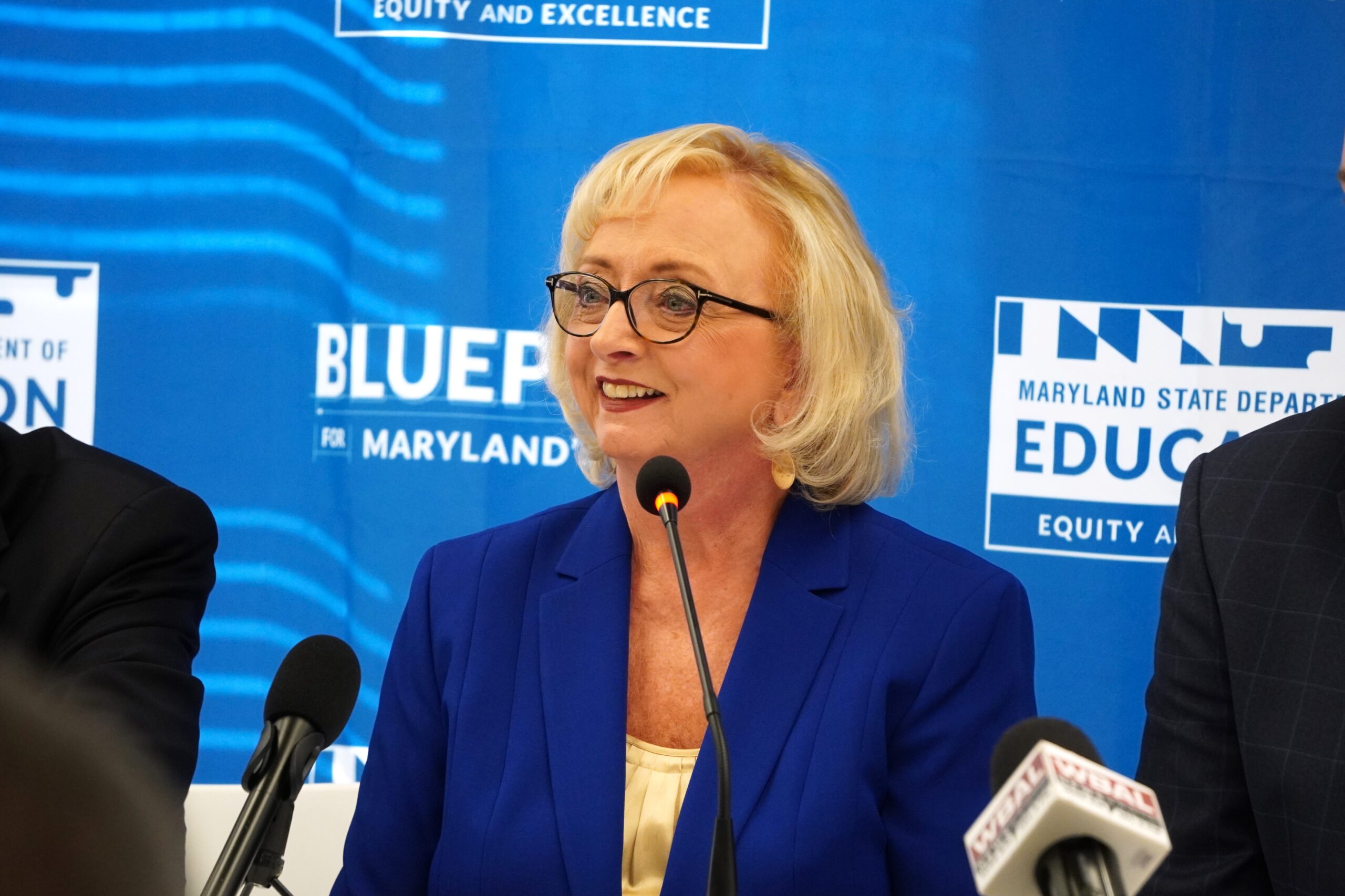Is There a Doctor in the House? Some Democrats Hope So

The conventional wisdom suggests that the Democratic primary in Maryland’s 6th congressional district is a three-way race between state Sen. Roger Manno, Del. Aruna Miller and businessman David J. Trone — and with good reason.
But a fourth candidate, Nadia Hashimi, a pediatrician and novelist, is trying to make history. If elected, she’d be the first female Democratic physician to serve as a voting member of Congress.
Hashimi is one of at least eight female physicians running for Congress as Democrats around the country this election cycle. That might not sound like a lot, but consider: Among the dozens of medical doctors who have served in Congress through the years, only two have been women.

Nadia Hashimi
Both were Republicans who only served briefly: former Rep. Nan Hayworth, an ophthalmologist, represented a suburban New York district in 2011 and 2012, and ex-Rep. Shelley Sekula-Gibbs, a dermatologist, represented a suburban Houston district for just seven weeks in late 2006 and early 2007 after winning a special election. A non-voting member, Del. Donna Christensen (D-Virgin Islands), who had a family medical practice, spent nine terms in Congress.
Hashimi said she is confident that her medical background will help her stand out in the Democratic field to replace U.S. Rep. John K. Delaney (D), who is retiring from Congress to run for president in 2020.
“I am literally bringing patients’ stories to the table,” she said. “This is a time when we need different types of people in office.”
The female physicians running for Congress say their desire to serve as lawmakers is an extension of their commitment to the service that they’ve shown as medical professionals.
The surge in Democratic female physicians running for Congress matches the boom in women’s political activity since President Trump was elected. Ramsey Ellis, a hand surgeon in Elmhurst, Ill., who is a leader of a loose nationwide coalition of female doctors called Physician Women for Democratic Principles, said many had worked for 2016 Democratic presidential nominee Hillary Clinton and were devastated by her defeat.
“Like so many people in this nation, the group woke up and thought, ‘What the hell are we going to do, and how do we work to be effective now?’” Ellis said.
For the first few months after Trump’s election, the physicians group was raising money for organizations like the Sierra Club, Planned Parenthood and international hunger relief efforts. But increasingly, as more of its own began running for office, Ellis said, Physician Women for Democratic Principles has become a fundraising and strategy conduit for the candidates – most of whom had never sought public office before – while continuing to support advocacy groups and charitable causes. In all, she said, the group has raised about $860,000 in the past year.
Now, the female candidates and the leaders of the physicians group are in regular contact, usually through group text messages.
“It’s a place I feel I can go to regularly for advice,” Hashimi said. “You know that that person [in the group chat] gets you because you have the same journey and the same challenges. It’s a place where you feel comfortable asking rookie questions.”
Emphasizing Health Care — and Climate Change
Because they are medical professionals, the Democratic women are emphasizing health care as they campaign, an issue on which they have great expertise and many ideas. But several are talking almost as often about climate change.
“It’s a fundamental issue of our health and the health of future generations,” said Kyle Horton, who shut down her practice in internal medicine so she could challenge U.S. Rep. David Rouzer (R-N.C.).
Horton has been one of the most vocal about climate. One of her relatives was killed in the 2010 Deepwater Horizon explosion in the Gulf of Mexico, and Rouzer’s district takes in the southern third of North Carolina’s coastline. Residents there are mobilizing against the Trump administration’s proposal to expand offshore drilling, and Horton believes this energy is powering her campaign to oust Rouzer, who is in his second term.
Rouzer has been generally supportive of offshore drilling, and “he has taken every possible chance to defund and hurt the mission of the [Environmental Protection Agency],” Horton said. “I’m hoping the 2018 elections is going to be the time when people say they’ve had enough of corporate polluters and career politicians.”
Of the 13 physicians currently serving in Congress, 11 are Republicans — and many of them are vocal climate skeptics. That includes Rep. Andrew P. Harris of Maryland, who is co-chairman of the 17-member House GOP Doctors Caucus, which includes dentists, a registered nurse and a pharmacist, in addition to the physicians.
The Democratic women who are running for office are at a loss to explain why so many Republican medical professionals serving in Congress are skeptical of climate science.
“How do you reconcile that?” Hashimi wondered. “Maybe I’m just hanging out with the wrong physicians — or the right physicians. That’s not the conversations I’m having [about climate]. I’m not sure why that disconnect happens.”
Steve Valk, a spokesman for the Citizens’ Climate Lobby, a group that has worked to elevate the debate over climate change on Capitol Hill, said it’s encouraging that women of science, like the Democratic physicians, are running for office.
“It will help at the very least to move the incumbents a little bit more toward accepting the science of climate change,” he said.
Underdogs
Hashimi’s race illustrates the challenges and opportunities for these female physicians running for Congress — all of whom are longshots to one degree or another.
She is one of eight Democrats running for the open seat in the 6th District, which extends from Montgomery County all the way to the rural reaches of western Maryland.
As of Dec. 31, Hashimi had $349,000 in her campaign account — buttressed by $225,000 from her own pocket. That put her ahead of Manno’s $285,000 (who loaned his campaign $72,000), but behind Miller’s $752,000 and Trone’s $787,000. Trone had contributed more than $2 million to his campaign through the end of the year.
Women’s groups are mostly backing Miller in the primary race, including Emily’s List, the Democratic fundraising powerhouse, and several former presidents of the Woman’s Democratic Club of Montgomery County, an influential group in the district. More recently, U.S. Sen. Kirsten R. Gillibrand (D-N.Y.) announced her support. Hashimi has been endorsed by the group the Feminist Majority.
And even though Physician Women for Democratic Principles has struck an informal alliance around the country with 314 Action, a new advocacy group that promotes scientists running for public office, the two have diverged on the Maryland race. 314 Action has endorsed Miller, a civil engineer.
Win or lose, the female physicians are thriving on the experience and say they are enjoying a new and different relationship with their patients.
“I miss so many of them,” Horton said. “But now I see my patients all the time on the campaign trail. They say, ‘That’s my doctor. She’s going to protect our health care.’ It’s very gratifying.”




 Creative Commons Attribution
Creative Commons Attribution